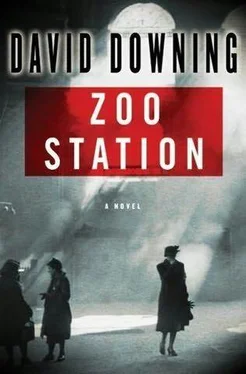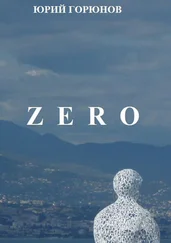David Downing - Zero Station
Здесь есть возможность читать онлайн «David Downing - Zero Station» весь текст электронной книги совершенно бесплатно (целиком полную версию без сокращений). В некоторых случаях можно слушать аудио, скачать через торрент в формате fb2 и присутствует краткое содержание. Жанр: Шпионский детектив, на английском языке. Описание произведения, (предисловие) а так же отзывы посетителей доступны на портале библиотеки ЛибКат.
- Название:Zero Station
- Автор:
- Жанр:
- Год:неизвестен
- ISBN:нет данных
- Рейтинг книги:5 / 5. Голосов: 1
-
Избранное:Добавить в избранное
- Отзывы:
-
Ваша оценка:
- 100
- 1
- 2
- 3
- 4
- 5
Zero Station: краткое содержание, описание и аннотация
Предлагаем к чтению аннотацию, описание, краткое содержание или предисловие (зависит от того, что написал сам автор книги «Zero Station»). Если вы не нашли необходимую информацию о книге — напишите в комментариях, мы постараемся отыскать её.
Zero Station — читать онлайн бесплатно полную книгу (весь текст) целиком
Ниже представлен текст книги, разбитый по страницам. Система сохранения места последней прочитанной страницы, позволяет с удобством читать онлайн бесплатно книгу «Zero Station», без необходимости каждый раз заново искать на чём Вы остановились. Поставьте закладку, и сможете в любой момент перейти на страницу, на которой закончили чтение.
Интервал:
Закладка:
Russell had no answer.
“And how long before we’re at war?” Albert persisted.
“Who knows…”
“A year at most. And that’ll put a stop to emigration. What do you think they’ll do with us then? They won’t let us work for a living now, and that won’t change. They’ll either leave us to starve or put us in work camps-slave labor. Some of my friends think they’ll just kill us. And they may be right. Who’s going to stop them?”
He could add Albert to the list of people he’d underestimated, Russell thought.
“My father’s Iron Cross was First Class,” Albert said. “Unlike our beloved Fьhrer’s.”
Russell stared out at the winter trees, and the roof of the old Krankenhaus Hospital rising above them to the south. “If you’re right-if your friends are right-then all the more reason not to jeopardize your chances-your family’s chances-of getting out.”
“I know that,” Albert said. “But what about the others? One family’s success is another family’s failure.”
Russell had no answer to that either.
“But thanks for the coffee and cake,” Albert said.
Lying in bed unable to sleep, Russell thought about Papa Wiesner’s Iron Cross First Class. It wasn’t a medal given to many-he must have done something pretty special. He supposed he should have realized that a Jew of Wiesner’s age would have fought in the war, but it hadn’t occurred to him. Goebbels’s propaganda was obviously working.
He wondered which front Wiesner had served on. He wondered, as he often did with Germans of his own age, whether they’d been facing him across those hundred yards of churned-up meadow near Merville. He sometimes wondered whether Frau Heidegger’s repeated accusation that he might have shot her husband was simply her way of warding off the possibility that he really had.
He had once thought that he was over the war, that time and circumstance had turned the horror into anger, the anger into politics, and the politics into cynicism, leaving only the abiding belief that people in authority tended, by and large, to be incompetent, uncaring liars. The war, by this accounting, had been the latest demonstration of a depressingly eternal truth. Nothing more.
He’d been fooling himself. All those who’d been in that particular place at that particular time had been indelibly marked by the experience, and he was no exception. You never shook it off completely-whatever it was it had left you with, whether nerves in tatters, an endless rage, or a joy-sapping cynicism. And the memories never seemed to fade. That sudden waft of decomposing flesh, the rats’ eyes reflected in the shell-burst, the sight of one’s own rotting feet. The unnerving beauty of a flare cracking the night sky open. Being splashed with someone else’s brain, slapped in the face by death.
Jimmy Sewell was his name. After helping carry what was left of him back to the medical station, Russell had somehow ended up with the letter he had just written to his girlfriend. Things were looking up, Sewell had told her, now that the Yanks were arriving in force. It had been late June or early July, 1918. One of a string of sunny days in northern France.
He and Razor Wilkinson had hitched a ride to Hazebrouck that evening, and gotten pissed out of their minds in a dingy back street bar. The more he drank, the more his brain-spattered face seemed to itch, and he had ended up wading into the River Lys and frantically trying to wash himself clean. Razor had stood on the bank laughing at him, until he realized that Russell was crying, and then he’d started crying too.
Twenty-one years ago, but Russell could still feel the current tugging at his legs. He levered himself out of bed and went to the window. Berlin was sleeping, but he could imagine Albert Wiesner lying in bed on his back, hands clenched around the blankets, staring angrily at the ceiling.
With Paul off on his Jungvolk adventure weekend, Russell and Effi spent most of Saturday morning in bed. Russell slipped on some clothes to bring back pastries and coffee from the shop around the corner, and slipped them off again when making love seemed more urgent than eating. Half an hour later Effi re-warmed the coffee on her tiny stove, and brought it back to the bedroom.
“Tell me about the film part,” Russell said, once they were propped up against the headboard. Effi had told him about the offer the night before, but had been too tired to go into details.
“They start shooting on the thirteenth,” she said. “Two weeks on Monday. Marianne Immel had the part, but she’s sick-pregnant, probably, though no one’s said so. They want me to audition on Tuesday morning, but I’ll have to be pretty bad to miss out-they won’t have time to find anyone else.”
“What’s it called?”
“Mother. And that’s me. It’s a big part.”
“Can I see the script?”
“Of course, but let me tell you the story first.” She licked a pastry crumb from her upper lip and pushed her hair back behind her ears. “I am Gerta,” she said. “I have a job in a factory, an important administrative job. I almost run the place for the owner. I like my work and I’m good at it.”
“But only a woman,” Russell murmured.
“Indeed. My husband Hans has a good job on the railways. And needless to say he’s active in the SA, very active in fact. Hans earns more than enough money to support the family-we have two children by the way, a sixteen-year-old girl and an eleven-year-old boy-and he rather thinks that I should give up work and look after them. But he’s too kind-hearted to insist, and I keep on working.”
“I sense tragedy in the offing.”
“Ah, I should add that my boss fancies me no end. I don’t fancy him-he looks decidedly Jewish by the way-but Hans is always away on Party business-you know, organizing parades, running youth camps and generally saving the nation-and the boss is kind enough and smooth enough to be good company, so I flirt with him a little and let him buy me pastries. Like you, in fact,” she added, looking at Russell.
“Do you flaunt your beautiful breasts at him?” Russell asked.
“Certainly not,” she said, pulling her nightdress closed. “Now concentrate.”
“I’ll try.”
“One day she and the boss go to visit a factory he’s thinking of buying, and on the way back they decided to stop off at a guesthouse with a famous view. On the way down the mountain his car gets a flat tire, and she’s late getting home. Meanwhile, son and daughter have arrived home from school, and can’t get in. They wait for a while, but it’s raining-buckets of the stuff-and son already has a cold. Daughter notices that one of the upstairs windows is ajar, and decides to climb up and in.”
“Only she doesn’t make it.”
“How did you guess?”
“Dead or just paralyzed?”
“Oh, dead. Though I suppose having her in a wheelchair would provide a constant reminder of my guilt. Which is, of course, enormous. I give up my job, despite the pleas of my boss. But the guilt is still too much, so I try and kill myself. And guess who saves me?”
“Son?”
“Exactly. He comes home with a couple of Jungvolk buddies to find me head down on the kitchen table with an empty bottle of pills. They rush me to the hospital on the cart they’ve been using to collect old clothes for Winter Relief.”
“And when you come round you realize that you can only atone for your daughter’s death by becoming the perfect stay-at-home mother.”
“Hans comes to collect me, takes me home, and tells me he can’t bear me being so unhappy and that I can go back to work if I want to. Whereupon I give the speech of my life, castigating him for letting me have my own way in the past, and saying that all I really want to be is a wife and mother. He weeps with joy. In fact we both do. The end.”
Читать дальшеИнтервал:
Закладка:
Похожие книги на «Zero Station»
Представляем Вашему вниманию похожие книги на «Zero Station» списком для выбора. Мы отобрали схожую по названию и смыслу литературу в надежде предоставить читателям больше вариантов отыскать новые, интересные, ещё непрочитанные произведения.
Обсуждение, отзывы о книге «Zero Station» и просто собственные мнения читателей. Оставьте ваши комментарии, напишите, что Вы думаете о произведении, его смысле или главных героях. Укажите что конкретно понравилось, а что нет, и почему Вы так считаете.












